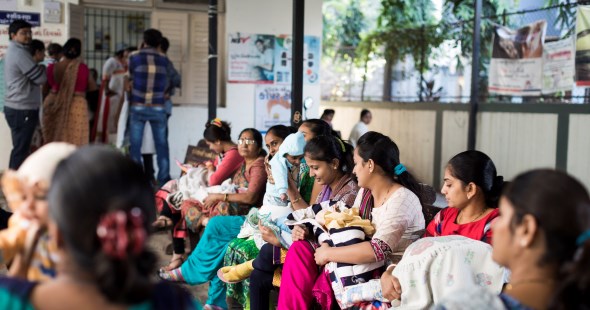Antimicrobial Resistance

Antimicrobial resistance (AMR) is a global health emergency. Decades of medical progress are under threat as our ability to treat infectious diseases reliably with antibiotics is compromised.
The landmark AMR Review predicted that within a generation, AMR could be responsible for 10 million deaths every year – with a loss of US$100 trillion in economic output – unless action is taken to avert the crisis. AMR is not discriminatory, but the burden falls disproportionately on low- and middle-income countries, where health systems are often weak, resources are stretched, and ”just in case” prescribing is common.
Bacteria will eventually develop resistance to all antibiotics. Some infections are already showing high levels of resistance, such as super-gonorrhea, and are particularly dangerous because they are easily transmitted and difficult to accurately diagnose. Resistance to antibiotics can rapidly develop when antibiotics are used to treat the wrong infection or non-bacterial infections, which makes diagnosing the specific cause of the infection so critical.
When the drugs don’t work, more powerful treatment options usually reserved for the most serious infections are employed (if they exist). This reduces the number of options available and can have far-reaching consequences. People with drug-resistant strains of TB, for example, are faced with longer treatment regimens and greater side-effects. The cost of treatment also skyrockets, putting tremendous strain on already stretched health systems.
Diagnostics enable the optimal use of existing drugs and the protection of new treatments. A simple diagnostic test flagging the presence or absence of a bacterial infection can dramatically cut antibiotic overuse. Rapid tests can reduce the time to pathogen identification and facilitate faster, optimized antimicrobial treatment. Diagnostics also allow for active surveillance of drug resistance, data that can be used to effectively target health interventions and ultimately save costs. They are an essential part of the global effort to avert a post-antibiotic apocalypse.
Our priorities
We are working with our partners and donors to tackle AMR holistically by focusing on urgent unmet needs across the spectrum of R&D and access.
- Developing new tests specifically designed to address AMR, such as stewardship diagnostics that will help to safeguard new medicines.
- Addressing barriers to diagnostic access that must be overcome to enable the use and impact of both existing and new tests.
- Building diagnostic connectivity solutions that can facilitate and strengthen AMR surveillance.
To stimulate research, speed up data generation to inform policymakers about diagnostic solutions, and drive behaviour change, we established and manage an AMR Dx Use Accelerator.
In addition, we are part of the CARB-X Global Accelerator Network, supporting diagnostic investments around the world and assisting new applicants for CARB-X funding for the development of diagnostics. FIND also helps CARB-X funded companies assess how diagnostic solutions could be used in resource-poor settings.
FIND is a member of VALUE-Dx, a public-private partnership to fight AMR through diagnostics, coordinated by the University of Antwerp, bioMérieux and the Wellcome Trust.
Antimicrobial Resistance: programme overview
AMR R&D pipeline
| Catalyse Development | Guide Use and Policy | |||
| Concept | Feasibility | Development | Evaluation | Demonstration |
|---|---|---|---|---|
| Gonorrhea DR test | Xpert Carba-R v2 (Cepheid) |
|||
| RDT reader for connected Dx | ||||
| Gonorrhoea Dx (CT/NG detection) | ||||
| Substandard & falsified medicine screening | ||||
Download our full R&D pipeline.
Quick links

